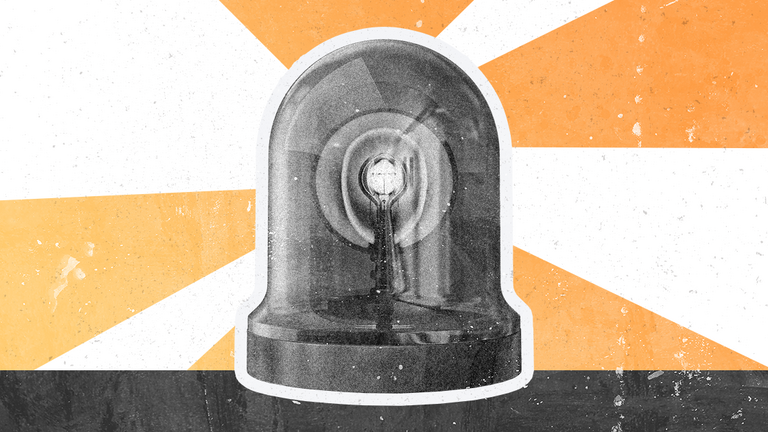Labour laws relaxed, loan payments suspended: A closer look at Hungary's coronavirus relief package
On Wednesday afternoon, Prime Minister Viktor Orbán announced a relief package to diminish the immediate effects of the coronavirus pandemic on the Hungarian economy. The government decree was published shortly before midnight on Wednesday, here are the details:
Suspending loan payments
For the extent of the state of emergency, all payment obligations related to loans paid out before Wednesday 0:00 AM to businesses or private individuals are suspended. The moratorium affects all bank loans and financial leasing contracts, and beyond principal and interest payments, the moratorium extends to fees as well.
By default, the moratorium ends on 31 December 2020, but it can be extended by a government decree. The moratorium also extends to loan contracts that would expire during 2020 - the deadline of obligations arising from these contracts is postponed until 31 December 2020.
Those who want to keep paying their instalments can do so; the decree does not affect debtors' rights to keep making payments in accordance with the original conditions.
Sectoral relief
Until 30 June 2020, the decree forbids landlords to terminate non-residential rent contracts or increase rent for businesses in the economic sectors worst hit by the pandemic, namely tourism, hospitality services, event organising, gambling, entertainment industry, film industry, performance arts, and sporting services. This too can be extended by a government decree.
For the months of March, April, May, and June, these sectors were also exempted from paying most contributions after their employee's wages, only healthcare contributions are still to be paid, although the decree introduces a 7710 Forint cap on that as well.
Private entrepreneurs performing passenger transport services under the so-called "KATA" tax regulation - or as Viktor Orbán said on Wednesday, taxi drivers - will not have to pay their flat tax for those same months, which means the deadline of their next tax payment corresponding to the month of July is 12 August.
These measures affect approximately half a million Hungarians.
According to Pénzcentrum's calculation, the tourism industry alone employs 428 thousand people, and a further 80 000 people are working in the transport, entertainment, sports, and culture sectors.
More flexible labour regulations
The decree also relaxed employment regulations, as the Prime Minister said in his announcement, "in order to help employers and employees come to agreements easier." In practice, this means that some provisions of the 2012 Labour Code were suspended until the 30th day after the end of the state of emergency.

The Labour Code prevents employers from altering work schedules fewer than four days in advance,
the government decree allows employers to alter work schedules anytime.
Employers can also unilaterally order employees to work from home or work remotely and introduce measures to check the health condition of their employees. The decree states that these temporary rules overwrite collective agreements and allows employers and employees to divert from the Labour Code's regulations in individual agreements.
Will personal loans disappear?
Starting from Thursday, the government decree also sets a limit on the annual percentage rate of all new consumer loans (except for mortgages) at the Central Bank's base interest rate (currently 0.9%) plus five percentage points.
It is unclear what the consequences of a 5.9% limit on the ARP of consumer loans - including personal loans and even credit card debts - will be; the introduction of similar measures is usually preceded by weeks of preparation, but the decree entered into effect hours after the announcement.
The analysis of Bank360 points out that it is uncertain if banks are even capable of providing loans at such interest levels. In 2019, the average ARP of the rather popular personal loans was above 13%, and now this changed to 5.9% overnight. Loans have fixed costs which smaller, short-term loans will simply not pay for at this interest rate.
The coronavirus situation in Hungary
Hungary closed borders to all foreigners except for residence permit-holding EEA citizens and spouses and parents of Hungarian citizens on Monday after declaring a state of emergency last Wednesday. This Wednesday, the Prime Minister announced an economic relief program which includes suspending all loan payments in the country until the end of the year. As of Monday morning, universities and schools are closed, education will continue remotely. All events are banned, cafes, restaurants, non-essential stores have to close at 3:00 PM each day (pharmacies, drug stores, grocery stores, tobacco stores, and gas stations can remain open longer). Hospitals in Hungary no longer accept visitors since last Sunday, doctors, medical staff, and public officials require special permits to travel abroad. Last Monday, the government has allocated more than 8 billion Forints (~€24 million) for the coronavirus response.
During his interview on public radio on Friday, Prime Minister Viktor Orbán said "foreigners dragged this disease into the country," and previously, he told European leaders during a teleconference that "there is an obvious link between the coronavirus and illegal immigration." Earlier, the government suspended access to the transit zones on the southern border where asylum-seekers could apply for refugee status.
The first Hungarian citizen to contract Covid-19 was a man who worked on the cruise ship Diamond Princess was confirmed to have the disease at the end of February and was treated in Japan. He reportedly recovered, testing negative last Thursday.
Click here to find all our English coverage about the coronavirus situation in Hungary.

Support the independent media!
The English section of Index is financed from donations.
Az oldalról ajánljuk
- Külföld
Letartóztatták a diszkótűzben érintett északmacedón település korábbi vezetőit
Három volt polgármester kerülhet a vádlottak padjára.
március 24., 07:32
- Belföld
A volt honvédelmi miniszter szerint nem szabadott volna civil kézbe éles fegyvert adni Újdörögdön
Szerinte nagy hibát követett el a minisztérium.
március 24., 08:33
- Külföld
A gázai tűzszünetről és békéről tárgyaltak, de kevés előrehaladás történt
Izrael ismét szárazföldi hadműveletekbe kezdett a palesztin enklávéban.
március 24., 08:40
- Futball
Szoboszlai Dominik a közösségi médiában szúrt oda az őt csendre intő Arda Gülernek
A Real Madrid játékosa is nyilatkozott a magyarokról a vasárnapi meccs után.
március 24., 08:33
- Futball
Leváltották a brazil kapitányt a világbajnoktól kapott monumentális zakó után
Eleve pocsékul szerepeltek a jelenlegi selejtezősorozatban.
4 perce
- Külföld
Megúszta a felelősségre vonást a megbízott dél-koreai elnök, visszakapta korábbi hivatalát
Ismét Han Dokszu Dél-Korea miniszterelnöke.
március 24., 08:27
- Kosárlabda
A zombori lótenyésztőhöz képest a fasorban sincs az elmúlt húsz év legnagyobb világsztárja
Hát hogyha még a sajtója is egy kicsit jobb lenne...
március 24., 07:49
- Kultúr
Márkó és Barna Síkideg – Jó hírek poloskáknak
Márkó és Barna szerint rengeteg „jó hír” érkezett az ország állapotáról, és az is jó, hogy ezekről mind elvonja a figyelmünket a gyűlöletkeltés.
március 24., 08:09
- Belföld
A DK a vasárnapi győzelem után üzent Magyar Péternek: nem szabad hinni a kamukutatásoknak
Az ellenzéki párt szerint ha nincs DK, akkor Angyalföld és Újpest már fideszes lenne.
március 24., 08:58
- Belföld
Bolla Tibor: Pereljük az oroszokat, a végén még az is kiderülhet, hogy szenzációs üzletet kötöttünk velük
Exkluzív interjú a BKV vezérigazgatójával.
március 24., 09:38
- Külföld
26 éve támadta meg a NATO a korábbi Jugoszláviát
Az áldozatok száma 1200 és 1500 fő közé tehető.
március 24., 09:17
- Vélemény
Hont András: Káosz közeleg az új világban, ahol Trumpék a punkok
Az a dúvadság, ahogy a populista provokáció rárúgja az ajtót a fennálló Rendre, neuraszténiás rohamokat vált ki a technokrata középszerből.
március 24., 07:02
- Belföld
Megszólalt a fonói gyillkossággal vádolt férfi barátja: mindenki tudta, hogy „fóliázik”
Egy bolti eladót és két idős embert bántalmazott a nyílt utcán mindenféle előzmény nélkül.
március 24., 05:51
- Gazdaság
Bedurrant a forint bicepsze, erősen kezdte a hetet a magyar fizetőeszköz
Maradt a múlt héten tapasztalt szint.
március 24., 07:21
- Külföld
Donald Trump megint a grönlandiak bajszát húzogatja, ami nem tetszik a szigetországiaknak
A leköszönő grönlandi kormányfő szerint az amerikaiak növelni fogják a nyomást.
március 24., 09:40
- Cinematrix
Új korszak kezdődött a Disney-nél, ingoványos talajra léptek
A vezérigazgató szerint óvintézkedéseket tesznek a felelősségteljes működésért.
március 24., 05:49
- Külföld
Előrehozott választásokat jelentett be a kanadai miniszterelnök
Mark Carney erősebb mandátumot akar az amerikai vámintézkedések miatt.
március 24., 05:50
- Tenisz
Novak Djokovics megdöntötte Rafael Nadal egyik elképesztő rekordját
Újabb mérföldkőhöz ért a 24-szeres GS-győztes teniszező pályafutása.
március 24., 09:39
- Külföld
Folytatódtak a zavargások Törökországban az isztambuli polgármester letartóztatása miatt
Diplomája visszavonásával is próbálják ellehetetleníteni Ekrem Imamoglut.
március 24., 07:04
- Belföld
Újabb részletek derültek ki a Ráckeresztúron meggyilkolt nőről
Szomszédai már egy nappal korábban is összevert arccal látták az áldozatot.
március 24., 05:59
- Futball
Szoboszlai Dominik üzent a kárörvendőknek a válogatott kiesése után
A csapatkapitány tudja, vannak, akik most boldogok, de hisz abban, hogy...
március 24., 06:56
- Degusztátor
Pierre olyan trehány húst kapott, hogy még a pincér is megkóstolta, ehető-e
Rendhagyó beszámoló, név nélkül...
március 24., 06:22
- Gazdaság
Spanyolország döntött: törvényi erővel csökkentenék az élelmiszer-pazarlást az országban
Megjelentek a részletek a jogszabályról.
március 24., 06:44
- Külföld
Izrael megtámadott egy gázai kórházat, a Hamász egyik tisztviselője is meghalt
A védelmi miniszter szerint a terrorszervezet tagja volt a célpont.
március 24., 06:56
- Futball
A világ egyik legjobb kapusa az évtized bakijával ejtette ki válogatottját
Nincs új a nap alatt: hat éve a Liverpool is megcsinálta ugyanezt.
március 24., 06:18
- Belföld
Változékony időjárással indul a hét, esőben és napsütésben is lesz részünk
A legmagasabb nappali hőmérséklet általában 15 és 21 fok között várható.
március 24., 06:16
- Reklám
A fiú cowboykalap formájú fejjel született, nincsen könnyű élete
A Tubi tudja, hogyan kell megfeszíteni a húrt.
március 24., 06:00
- Belföld
Kamasz gyerekeknek árultak kokaint és marihuánát
Kereskedőkre csapott le a rendőrség.
március 24., 08:58
- Külföld
Tovább forrong Isztambul, ezrek vonultak utcára a letartóztatott polgármester miatt
március 24., 06:34





























